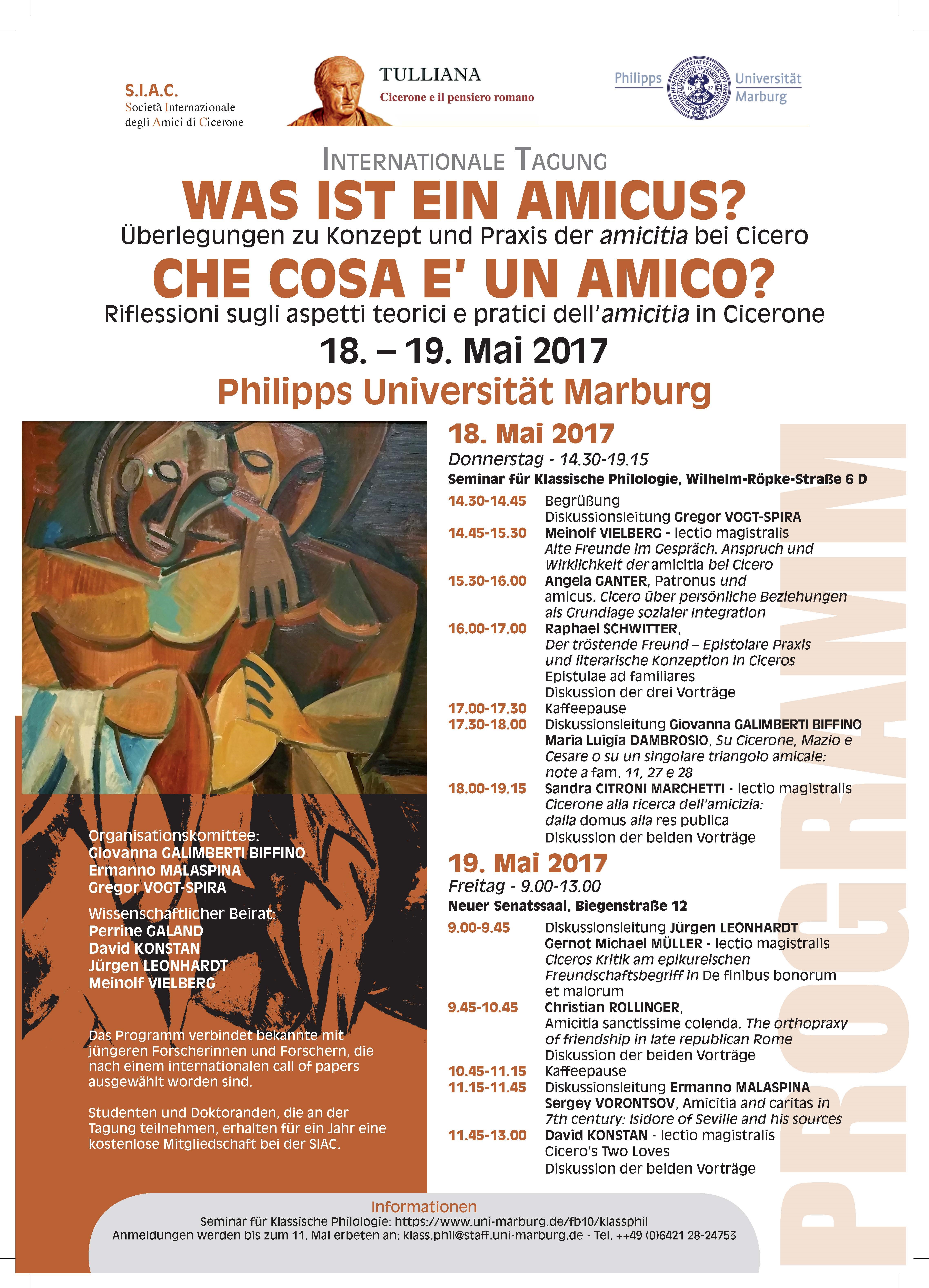Cicerone alla ricerca dell'amicizia: dalla domus alla res publica - Cicero in search of friendship: from the domus to the res publica
DOI:
https://doi.org/10.13135/2532-5353/2500Abstract
With a view to exploring the concept and practice of friendship in Cicero’s work, the paper conducts a systematic review of the epistolary corpus with a focus on the portrayal of social relations, namely Cicero’s relationship with his friends, with political figures, and the more intimate connection with Atticus. One of the paper’s claims is that affectivity is not only a constitutive element of friendship but that it is present across representations of all social relations, albeit to different degree in different specific relations. Cicero is personally invested and deploys emotive language even in relationships with individuals who exist outside of his private sphere. Dictating Cicero’s behaviour across these engagements is his concern with a general code of ethical conduct, the specific parameters of amicitia established in the Laelius, or the responsibility Cicero feels towards the res publica.
Allo scopo di definire il significato dell’amicizia in Cicerone si esaminano, attraverso un’indagine sistematica dell’epistolario, le sue varie relazioni sociali: il rapporto con i familiari, quello intimo con Attico, i rapporti politici. L’affettività, che deve essere considerata elemento essenziale nell’amicizia, risulta presente, in gradi molto diversi, nei diversi casi. Anche quando le persone qualificate con la terminologia dell’amicizia siano le più esterne al suo mondo privato, nel rapporto con esse Cicerone impegna la propria personalità e la propria affettività, confrontandosi ogni volta sia con un codice di comportamento morale di valore generale sia con lo specifico codice etico dell’amicizia quale viene descritto nel Laelius, sia ancora, costantemente, con le responsabilità che egli sente di avere nei confronti della res publica.
Afin de définir le sens de l amitié chez Cicéron, à travers un examen systématique de ses lettres, on examine ses différentes relations sociales : le rapport à la famille, l intimité avec Attique, les relations politiques. L affectivité, qui doit être considérée comme un élément essentiel de l amitié, est présente à des degrés très différents dans les différents cas. Même lorsque les personnes qualifiées avec la terminologie de l amitié sont les plus extérieures à son monde privé, dans sa relation avec eux, Cicéron s engage sur sa personnalité et son affection, confrontant constamment à la fois un code de comportement moral de valeur générale, le code d éthique spécifique à l amitié décrit dans le Laelius, et enfin les responsabilités qu il estime avoir vis-à-vis de la res publica.
Downloads
Downloads
Published
How to Cite
Issue
Section
License
Authors who publish with this journal agree to the following terms:
- Authors retain copyright and grant the journal right of first publication with the work simultaneously licensed under a Creative Commons Attribution License that allows others to share the work with an acknowledgement of the work's authorship and initial publication in this journal.
- Authors are able to enter into separate, additional contractual arrangements for the non-exclusive distribution of the journal's published version of the work (e.g., post it to an institutional repository or publish it in a book), with an acknowledgement of its initial publication in this journal.


 Ciceroniana On Line is recognised by ANVUR (the National Agency for the Evaluation of the University System and Research) as a CLASS A journal for the Sciences of Antiquity, Philology, Literature and History of Art (
Ciceroniana On Line is recognised by ANVUR (the National Agency for the Evaluation of the University System and Research) as a CLASS A journal for the Sciences of Antiquity, Philology, Literature and History of Art ( The journal is included in DOAJ. The DOAJ listing of the journals is available at
The journal is included in DOAJ. The DOAJ listing of the journals is available at  The journal is indexed in
The journal is indexed in  The journal has been included in ERIH PLUS. The ERIH PLUS listing of the journals is available at
The journal has been included in ERIH PLUS. The ERIH PLUS listing of the journals is available at 

